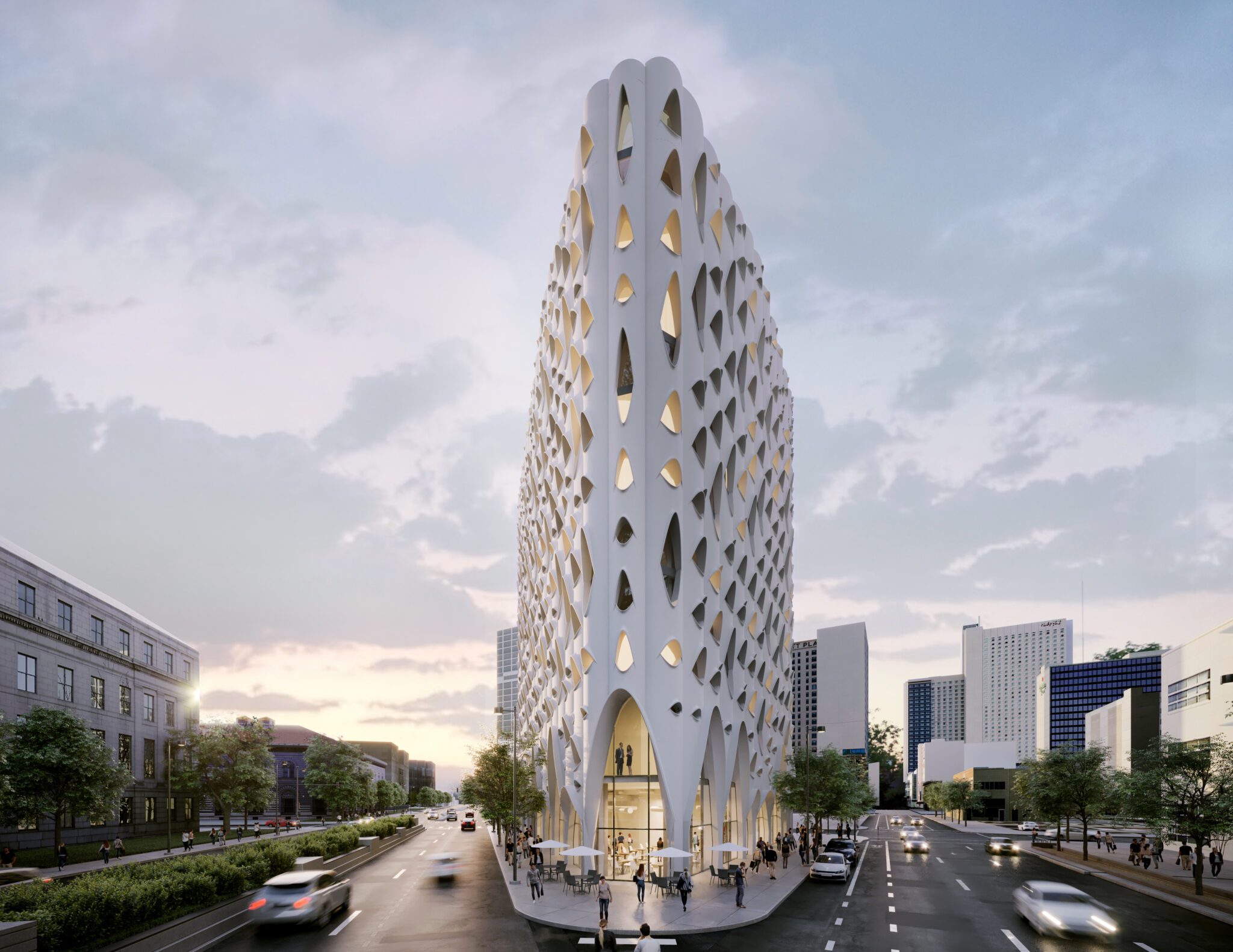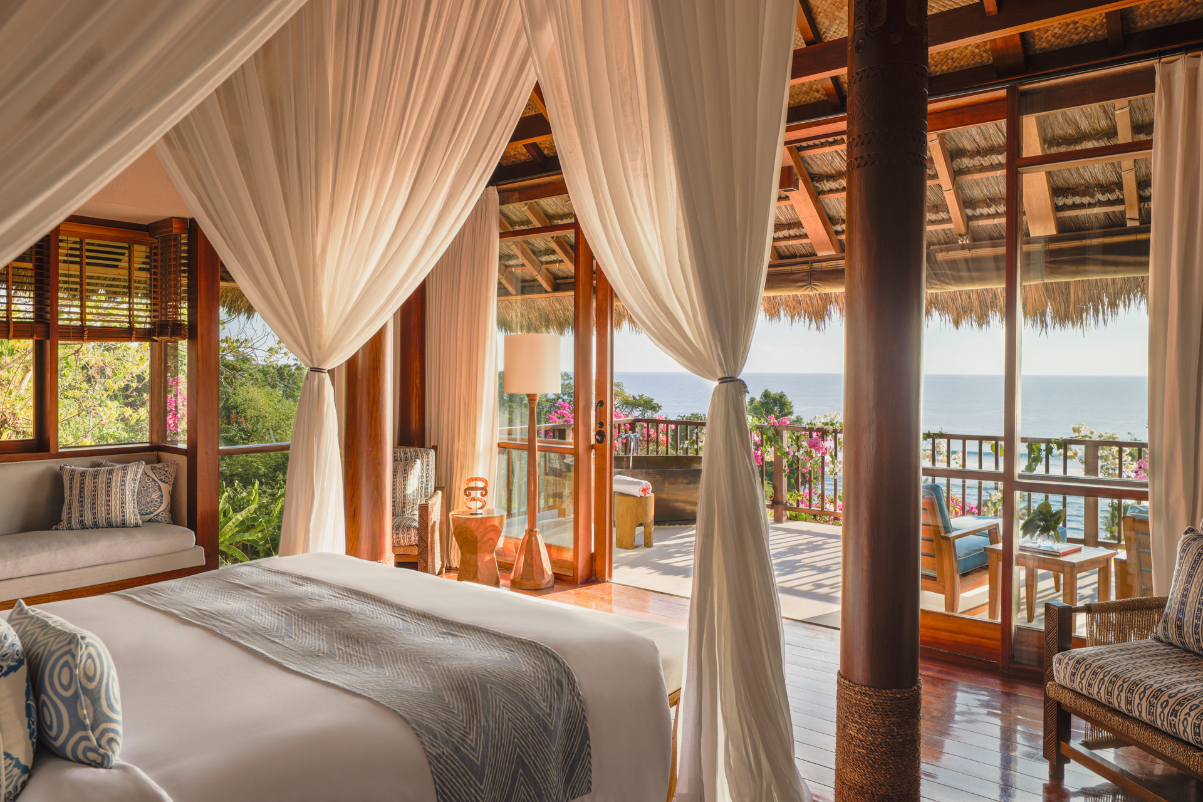No Carbon Credits, No Problem: This Hotel Hopes to Be ‘Carbon Positive’ Without Them

Skift Take
Denver’s new Populus hotel, opening this summer, aims to be a “carbon-positive” hotel and an example of environmentally conscious hospitality. But two things make this hotel stand out: Populus plans to do this without buying carbon credits or focusing on LEED certifications.
Populus’ team intends to blend contemporary style and natural elements, with the building boasting views of the skyline and mountains. The hotel has 265 rooms and suites, a rooftop, two restaurants, a coffee bar, and event spaces.
The idea of carbon-neutral hotels isn’t new. How Populus is going from neutral to positive, though, is different. Think of carbon positive as one step beyond carbon neutral. The hotel’s developer, Urban Villages, considers carbon-positive status as sequestering — collecting and storing — more carbon in soil and biomass than is produced across the building’s lifespan.
Offsetting the initial emissions
While Urban Villages tried to limit the carbon emitted while building the hotel — such as by using reduced-carbon concrete — the plan wasn’t perfect.
“There's no way to build a building that does not emit carbon,” Urban Villages President Jon Buerge told Skift. “It's an impossible venture.”
To achieve neutrality, companies will sometimes rely on carbon credits. These credits allow companies to finance projects aimed at reducing greenhouse gas emissions or collecting carbon from the atmosphere. This strikes a balance in carbon output with the polluter, ideally reaching net zero. Standards around carbon credits aren't always universal, but projects undergo verification, according to the Harvard Business Review. That wasn’t in Populus’ playbook.
“It's just a financial transaction. We're not actually emitting or sequestering carbon as a result of this transaction,” Buerge said. “We got uncomfortable with this idea of this financial transaction that goes into some ether that we don't understand.”
Instead, Urban Villages partnered with the U.S. Forest Service to plant 72,000 trees in Colorado’s Gunnison County. Consultants and Urban Villages estimated these trees would cover the 7,500 megatons of carbon released in the building process.
The choice of Engelmann spruce trees was intentional — Japanese Beetles decimated trees in Colorado, but this spruce would be resilient. Buerge prioritized keeping the sustainability efforts close to home.
Urban Villages also decided not to focus heavily on LEED certifications, which rely on a points system to classify green buildings globally. After working on a LEED Platinum project — the most esteemed rating — in Seattle, Buerge said the team changed direction.
“I realized along the way, we were just chasing these points,” Buerge said. “We were doing things that were expensive, but the net impact was pretty minor… Why are we doing this? Is it just to get the certification, or are we really trying to build the best building we can build for the planet?”
Let’s be clear: Populus isn’t carbon positive yet. It will take five to seven years for these trees to cover the hotel’s building stage. Balancing out these emissions is only the first step for Populus.
Cutting out carbon going forward
Populus, designed by architecture firm Studio Gang, has windows to boost energy efficiency and a rainscreen to provide insulation throughout the year, among other eco-friendly features. To encourage walking and public transit use, Populus doesn’t have a parking garage. Trees that fell victim to the Japanese Beetle get a second life — the wood makes up the headboards.
Populus will exclusively rely on renewable energy, and Urban Villages wants to continue investing in environmentally friendly land management solutions.
On the operations side, the hotel plans to rely on food produced through regenerative agriculture, which would boost soil quality.
“We're continuing to invest in no-till farming operations that will not only sequester carbon but also source healthy food back to the hotel,” Buerge said.
A spokesperson from Aparium Hotel Group, which will manage the hotel, said Populus will have seasonal menus, more plant-based meals, and reusable and biodegradable packaging.
Considering a future of carbon-positive hotels
Denver seems primed to host a carbon-positive hotel.
“Denver has always had a long-term commitment to sustainability,” said Justin Bresler, VP and chief marketing officer at Visit Denver.
But Buerge also thinks the environmental initiatives at Populus could be applied elsewhere.
“It's always good to be doing nature-based sequestration strategies,” Buerge said.
He isn’t worried about the return on investment for Populus, either.
“(A green building) doesn't have to reduce your investment returns,” Buerge said. “If you do it the right way, if you do it holistically, if you take your time, you can build a building that is better for the planet, and better for your investment.”




